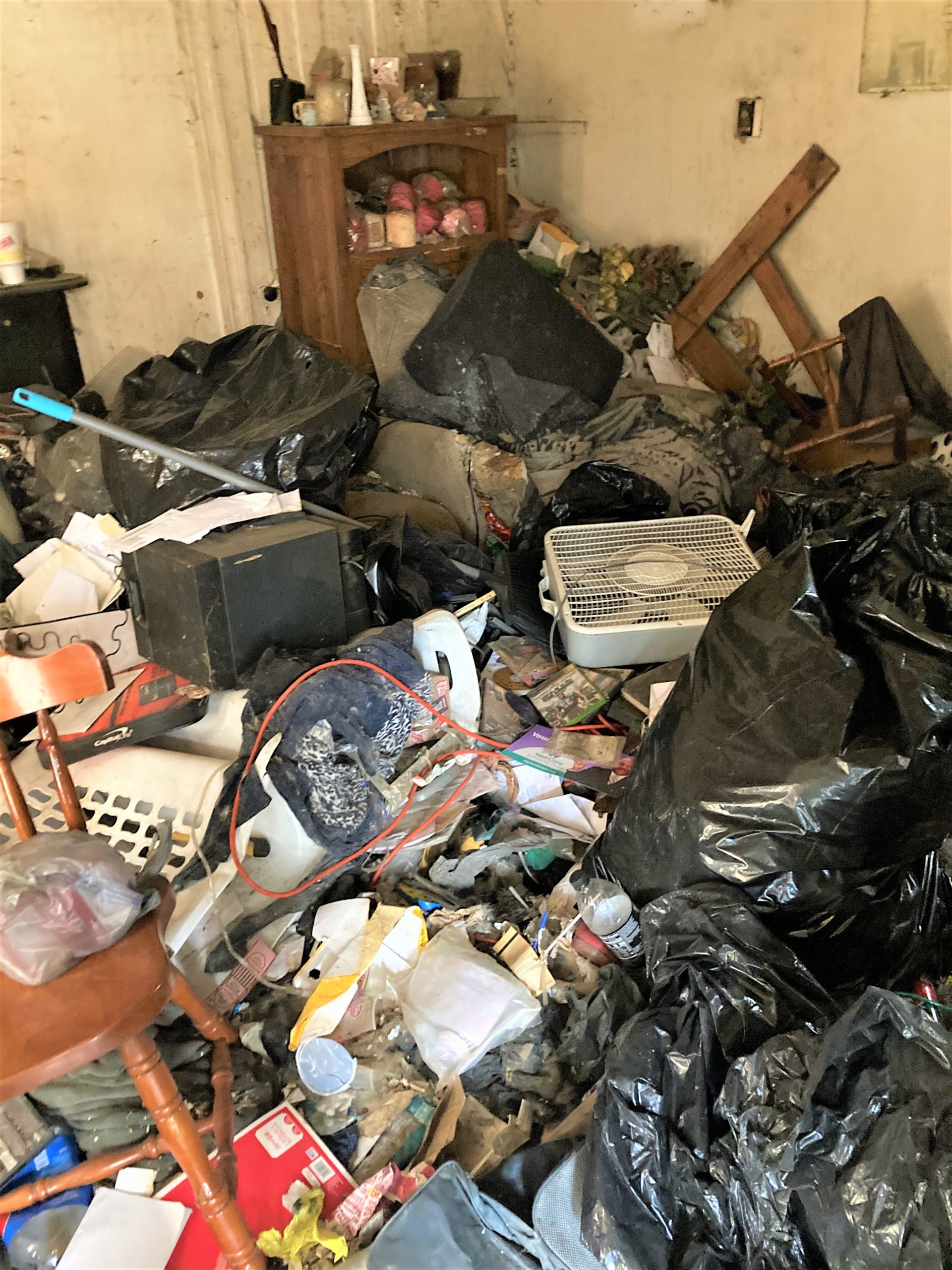People in neighborhood ‘who are trying to take care of their homes just give up’
Housing blight sometimes goes beyond appearances. The Wayne County Health Department gets involved when conditions threaten the well-being of people living in or near a home.
“It’s important not just for the individuals living there but for the community as a whole. When one house becomes blighted, it become a cancer for the whole area,” Christine Stinson, the Health Department’s executive director, said. “It doesn’t stay just at that address. The people in the neighborhood who are trying to take care of their homes just give up.”
The Health Department’s housing division is responsible for looking into complaints about unhealthy conditions, county-wide. Their role is limited by state law to conditions that are provably unhealthy, or which might promote unhealthy conditions.
“We’re not the clean police,” Stinson said. “I’ve seen messy houses. It’s only when it gets to the point where it’s promoting disease.”
Factors that get attention from the Health Department include infestation by cockroaches, mice and rats and other vermin; several dogs, cats or other animals living in the house and not being taken care of; no running water; plumbing that doesn’t work; sewage lines or septic systems that are leaking into the yard or nearby properties.
“You see these TV shows like ‘Hoarders,’ but this happens here in Richmond and in the towns in the county, in Hagerstown, in Cambridge City, Centerville, all over,” she said.
Sometimes, Stinson said, the Health Department finds residents dumping buckets of human waste in the yard or going to the bathroom outside. Lots of pets, not being taken care of, might mean urine and droppings all over the house. That makes strong odors such as ammonia that can affect air quality to the point of harming human health, although the Health Department cannot write corrective orders strictly on the basis of smell.
The Health Department operates only on the basis of complaints, often from neighbors and concerned relatives. Sometimes, renters living in a house turn in the landlord because they won’t fix a problem. Sometimes police find situations and report them to the Health Department. The Child Protective Service or Adult Protective Services may report unhealthy conditions to the department.
In the city of Richmond, the Code Enforcement Division looks for structural problems with buildings or accumulations of trash, unmowed grass and weeds. When Code Enforcement also finds unhealthy situations, they ask the Health Department to get involved.
But the enforcement mechanisms of the city’s Code Enforcement Division and the Wayne County Health Department are different. For one thing, the city has a budget for demolition and cleanup jobs when the owner does not comply with a citation, although property owners are then billed for them. The Health Department has no budget to deal with buildings that are unfit for human habitation.
The city has a built-in due process procedure where landowners can have something similar to a “day in court” without going to court. The county Health Department has no such procedure.
In the city, the Code Enforcement Department sends a written order to property owners requiring them to repair, demolish or clean up a property that is out of compliance with local standards and giving them a deadline to comply or explain what they are doing to comply. Code Enforcement also cites owners to come to a monthly meeting of the Unsafe Building Commission.
That group of citizens hears evidence from Code Enforcement officers and from the landowner and then confirms or alters the order. Code Enforcement also follows up to make sure the work is done. Property owners can appeal the Unsafe Building Commission’s decision to court, but usually don’t.
If the city has to act because an owner does not, the Board of Public Works and Safety has a budget and hires contractors to get buildings demolished or repaired and cleaned up. Code Enforcement also has staff for less-involved jobs, such as mowing or removing debris.
State law governs the Health Department’s enforcement process. When the Health Department finds a situation requiring action, it sends a written order to the property owner, declaring a building unfit for human habitation. That order gives the owner 5-15 days to fix the problems or have people vacate the home.
Owners who disagree with the order can appeal it to a county court within 10 days. If the owner doesn’t appeal, the order is considered “final and conclusive,” Stinson said.
But then what? An order “doesn’t mean the police will go in and remove the people,” Stinson said.
When owners take no action, the Board of Health must take them to court. In such cases, the Health Department seeks demolition of the unhealthy building. Then, the problem becomes getting in front of a judge. That can take weeks or months. And when the case comes to court, sometimes the property owner doesn’t show up.
“Then we are left chasing after these ghost landlords who are thumbing their noses at us,” Stinson said.
Even if a judge rules that a structure must be demolished, the Health Department has no funds to do it.
“We would have to go in front of the [Wayne County] Council for an additional appropriation,” Stinson said.
And that also leaves the problem of what to do with the people who can no longer live there. The Health Department is not responsible for finding adequate places for residents. Social agencies might step in to help, but might not.

